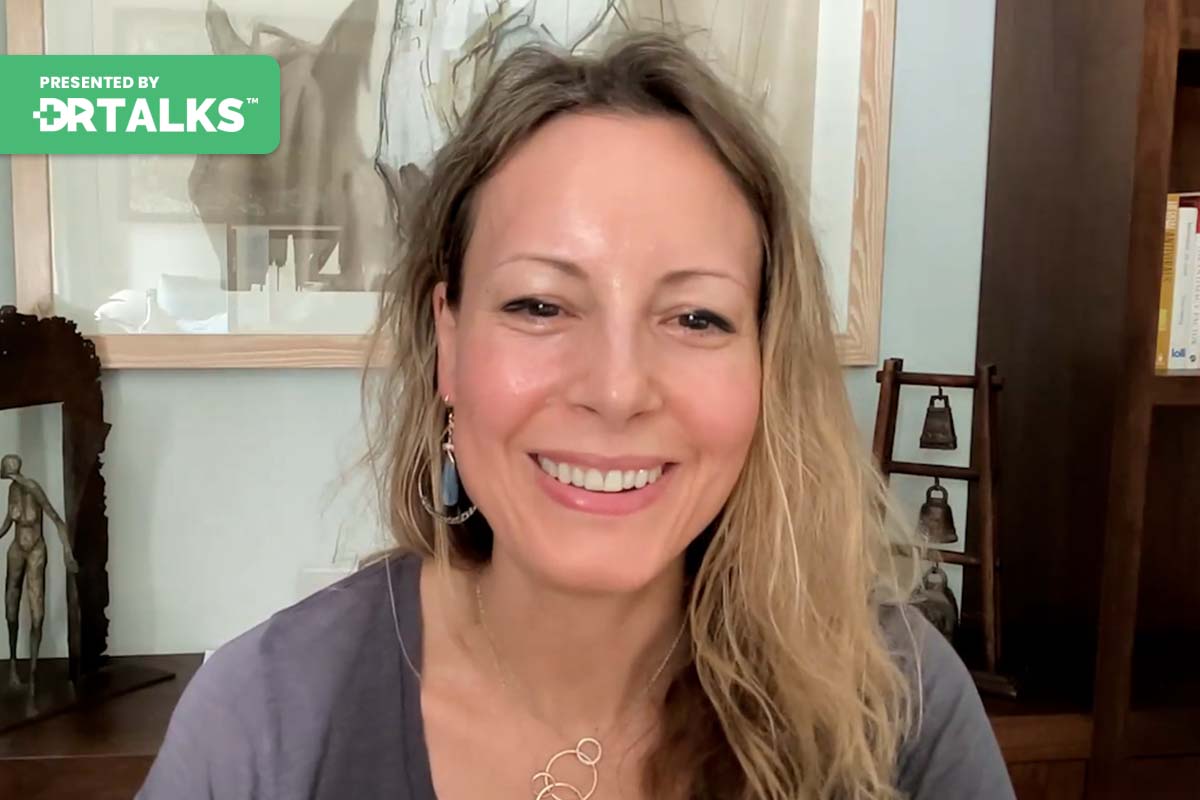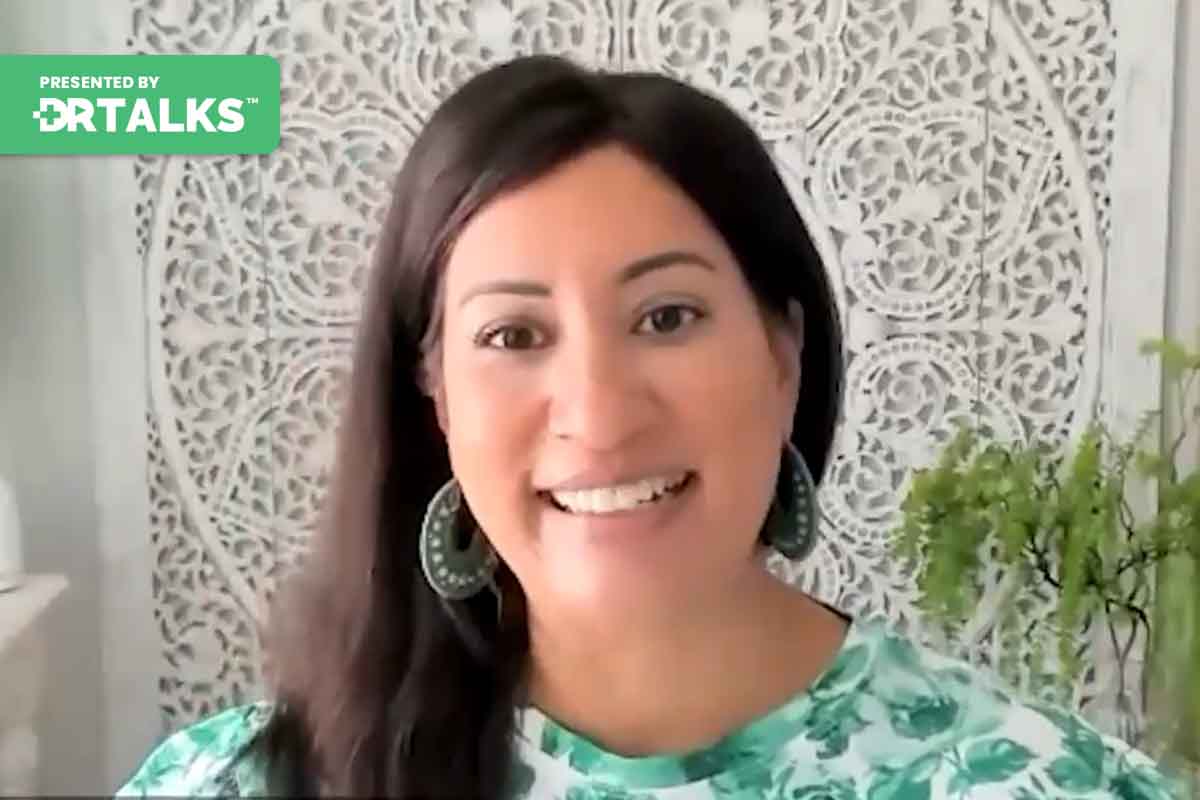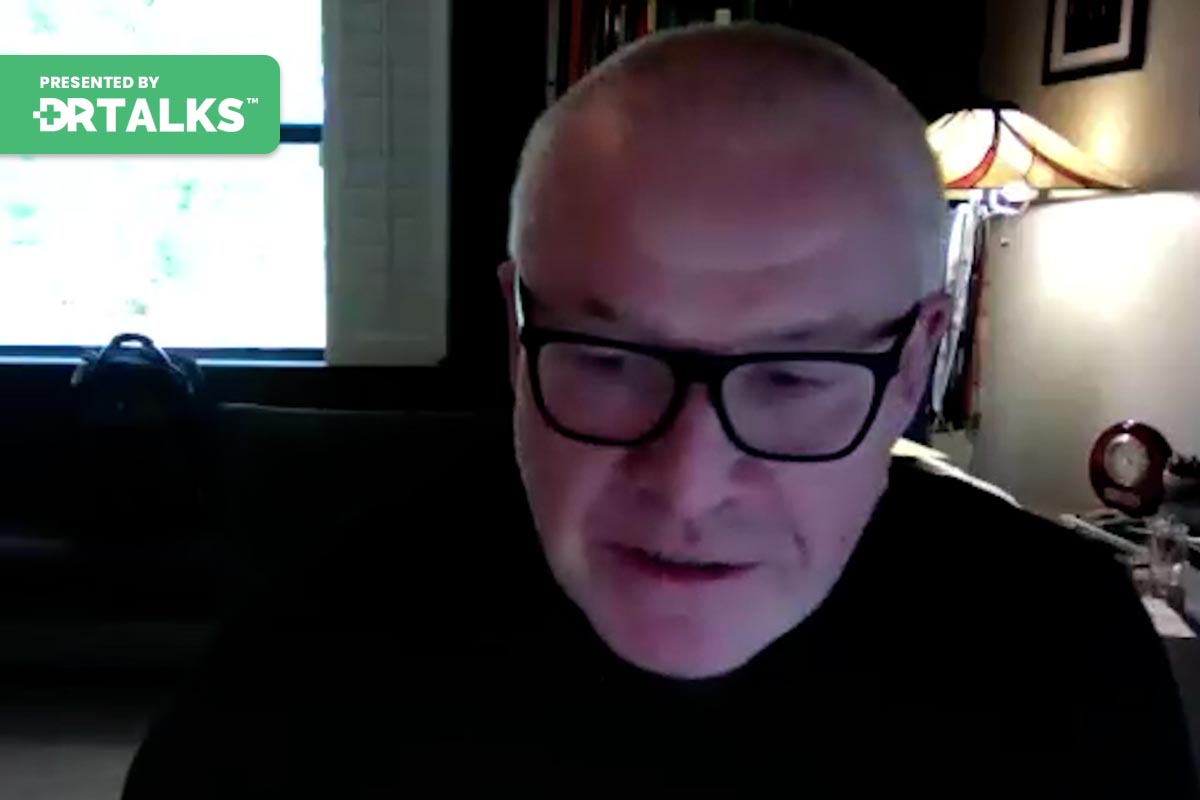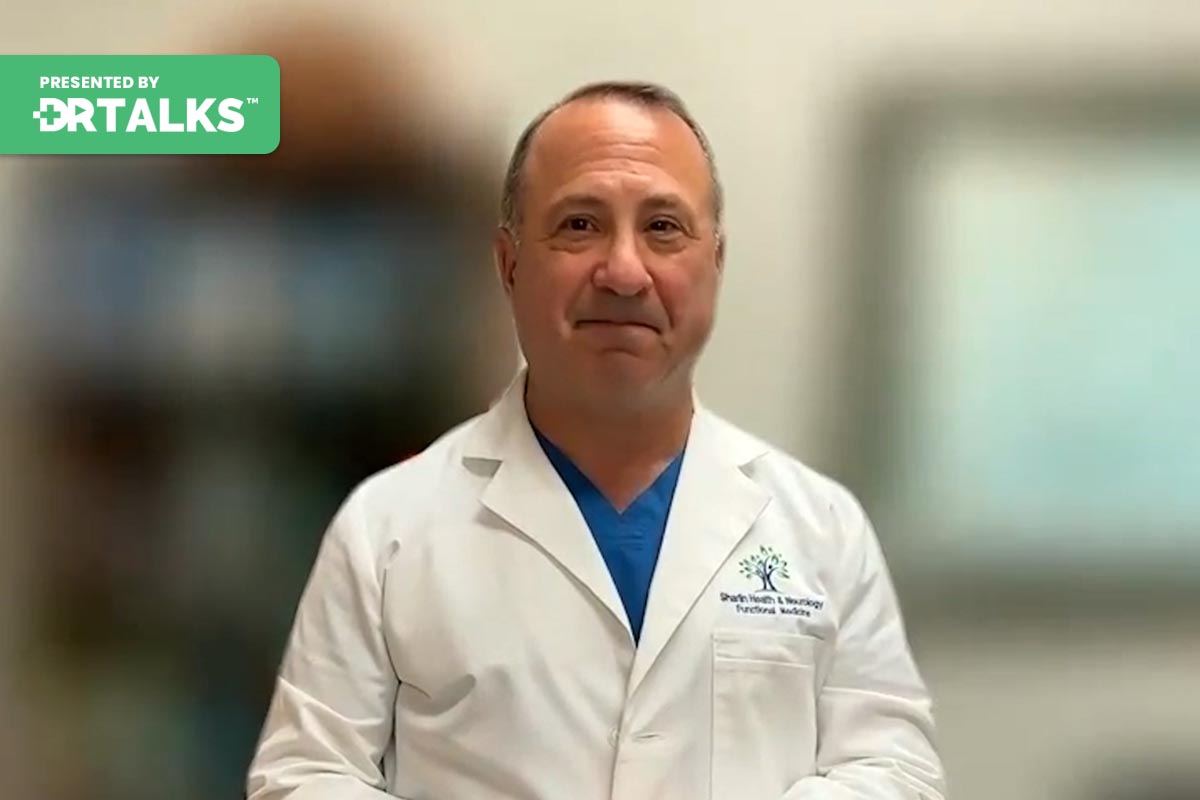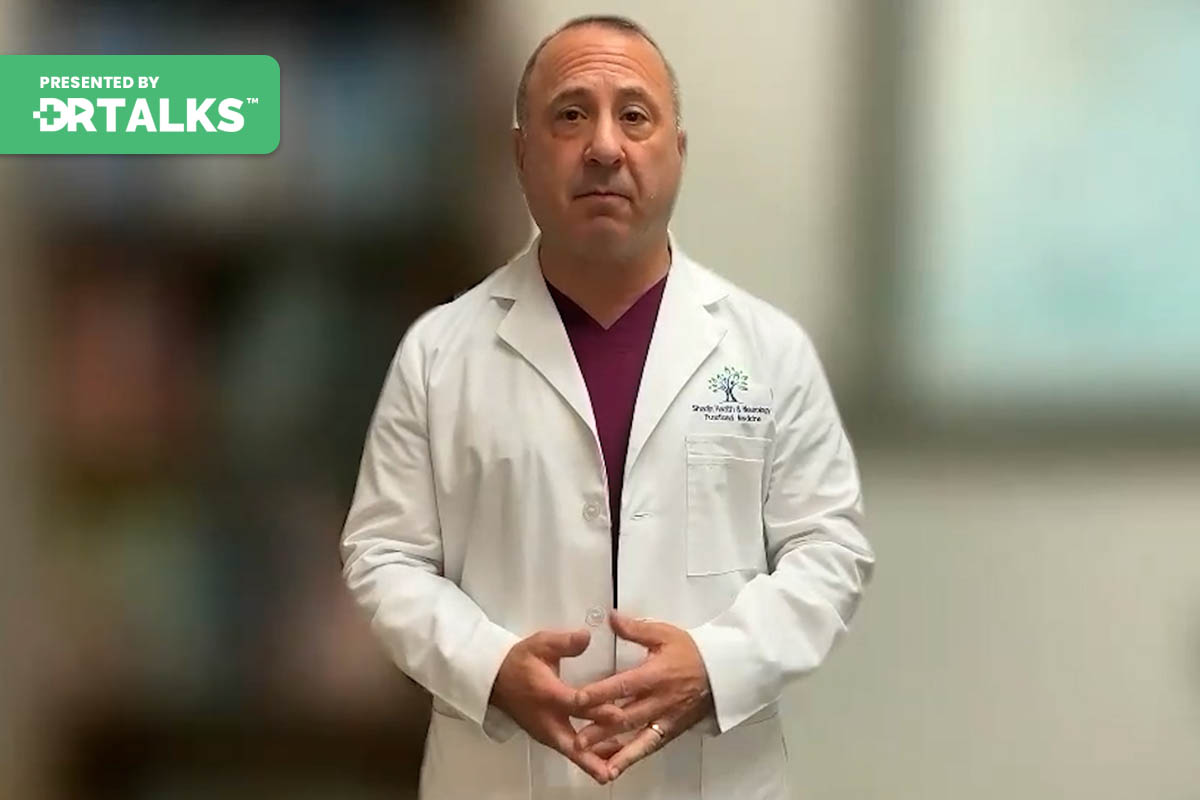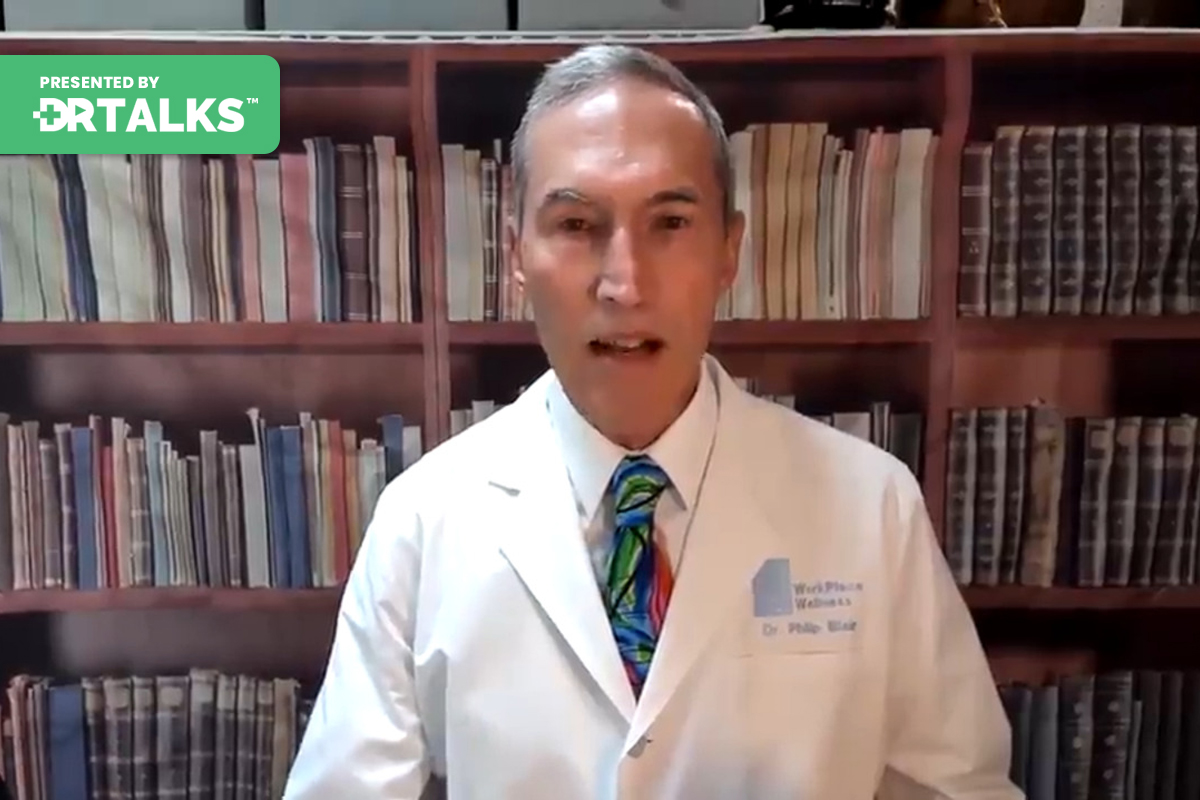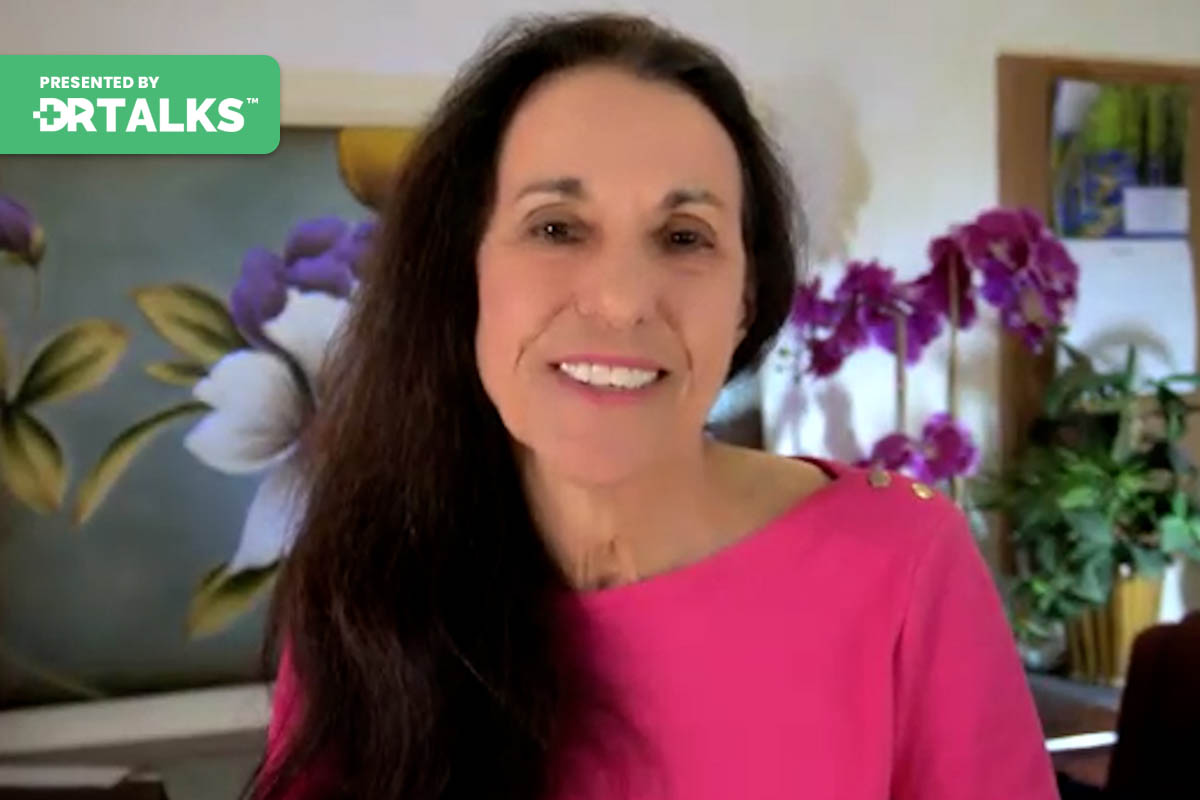Join the discussion below
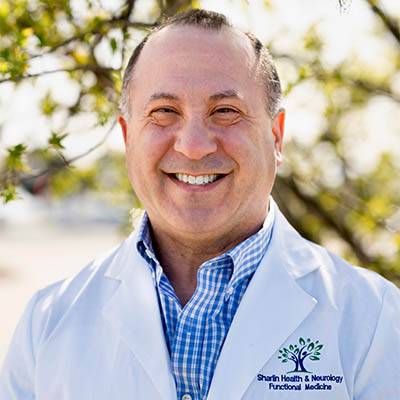
Kenneth Sharlin, MD, MPH, IFMCP
Kenneth Sharlin, MD, MPH, IFMCP, is a board-certified neurologist, consultant, functional medicine practitioner, Assistant Clinical Professor, researcher, author, and speaker. His medical degrees are from Emory University, The University of Virginia, and Vanderbilt University. His functional medicine certification is through The Institute for Functional Medicine. He is author of the... Read More
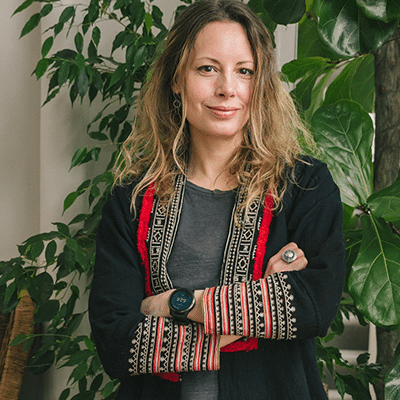
Kirkland Newman is an Anglo-American journalist and philanthropist. She is the Founder and Editor of MindHealth360, a free, global resource for integrative mental health and functional medicine psychiatry, the Host of The MindHealth360 Show, and the Executive Director of IMMH, Integrative Medicine for Mental Health. She created MindHealth360 after her... Read More
- Discover the value of a holistic, all-encompassing strategy in tackling both Parkinson’s and its mental health implications
- Explore the connection between Parkinson’s Disease and mental health, focusing on their standard links to inflammation and oxidative stress
- Discover a range of tools, from sleep optimization to gut healing, to manage mental health issues in Parkinson’s
- This video is part of the Natural Parkinson’s Solution Summit
Related Topics
Anxiety, Autoimmune Disorders, Biochemical Imbalances, Dementia, Fatigue, Heavy Metal Toxicity, Hormone Levels, Insomnia, Internal Family Systems, Metabolic Health, Mitochondria, Mold, Mold Toxicity, Muscle Fasciculations, Muscle Weakness, Nervous System, Neurodegeneration, Neuroinflammation, Neurological Symptoms, Panic Attacks, Panic Disorder, Parkinsons, Parkinsons Tremors, Polyvagal Theory, Postpartum Depression, Power, Psychotherapy, Rheumatoid Arthritis, Toxins, Traumatic Brain Injuries, Zinc DeficiencyKenneth Sharlin, MD
Welcome to the Parkinson’s Solutions Summit. I’m your host, Dr. Ken Sharlin. I hope you’ve been enjoying all the wonderful interviews we’ve had for you this week, and I am very excited to introduce you to Kirkland Newman. Kirkland, I call her Kiki, and that’s how she prefers to be addressed. Kiki Newman is an Anglo-American journalist and philanthropist, and she is the founder and editor of MindHealth360. This is a free global resource for integrative mental health and functional medicine. Psychiatrists, and neurologists like myself, as well, and she is the host of the MindHealth360 Show. She has also recently taken on another hat. I don’t know how she does it all, but she is the executive director of the Integrative Medicine for Mental Health Conference, which has educated many holistic practitioners around the world. Now here we are talking about mental health, and you might say, “Well, what does that have to do with Parkinson’s disease?” Well, anxiety and depression are pervasive in Parkinson’s, and the statistics are quite staggering. At least a third of all people affected by Parkinson’s suffer from mood disorders, although some estimates are that up to 90% are affected. Mood disorders are the most prevalent non-motor symptoms of Parkinson’s disease. They can be part of the expression of the disease in its full form, or they can be premonitory and herald the onset of the motor symptoms of Parkinson’s disease. In fact, mood symptoms can be the earliest expression of Lewy body dementia, which is related to Parkinson’s disease. We can also see changes in personality, which can lead to the tragedy of suicide, as we did with the great actor and comedian Robin Williams. That was a little bit of a lengthy intro, but it’s so important to understand that we are talking about an incredibly important subject, which is mental health, and how we can approach this with Parkinson’s, with our loved ones, with our friends, and with our colleagues, and spread the message that there are many solutions to addressing mental health. Kiki Newman, welcome to the Parkinson’s Solutions Summit.
Kirkland Newman
Thank you so much for having me. Dr. Sharlin, it’s wonderful to be here, and I’m very grateful. I’m passionate about mental health. But also from a personal perspective, I have become very interested in neurodegeneration because, for the last two years, I’ve actually had mold toxicity, which has caused Parkinson’s tremors. It’s caused muscle fasciculations. For six months, I had all these scary neurological symptoms, such as fatigue, muscle weakness, fasciculations, repetitions, and tremors. I had no idea. You can imagine the worst. It took me about six months to figure out that I had a bad case of mold toxicity. I became very interested in the whole neurodegenerative aspect, which originally focused mainly on mental health. This is very interesting to me. What’s particularly interesting is the intersection between mental health, neurodegeneration, and co-morbidities. But also, if you look back at the root cause, what are the root causes? It seems to me that there are so many common denominators between these areas and how much they overlap. I will be quiet and let you ask your questions. But I just wanted to preface it by saying that.
Kenneth Sharlin, MD
Well, why don’t we start out by explaining exactly what MindHealth360 is for? I know they’re going to want to explore that after this interview.
Kirkland Newman
MindHealth360: I basically started having very bad postpartum depression after the birth of both my boys, one of whom is now 18 and the other is 14. I had a difficult experience. I had terrible insomnia. I had postpartum anxiety and panic disorder. I would have panic attacks and a lot of anxiety. I would put on Mary Todd’s opinion or a REM run. I was put on various sleeping pills. I had a terrible time because the only solutions offered to me by mainstream psychiatrists who I saw were antidepressants, sleeping pills, and some CBT. I struggled. In fact, I got worse rather than better on these drugs. I struggled for several years. I then became addicted to these drugs, and I couldn’t seem to get off them without having terrible rebound, panic attacks, and insomnia. In the meantime, my hair was falling out and my nails were brittle. I was even more depressed than I had been. I was less anxious, but I was more depressed. The whole thing was just that I had no support from my conventional GP, psychiatrist, or even endocrinologist, who diagnosed me with reactive hypoglycemia and all these strange things. But nobody put the whole picture together. Then I discovered functional medicine. This was back in 2011, and I discovered Dr. Sara Gottfried, who was doing webinars on hormone health, and I started to follow her and learn all about functional medicine. I thought, my goodness, why do more people not know about this? If you look at the root cause, especially in the case of hormonal mood disorders such as post-partum depression, PMS, and menopausal symptoms, so many of them are linked to your nutritional status, your hormone levels, etc., yet mainstream medicine is not looking at these at all. The more I knew, the more I learned about functional medicine, and the more I thought, well, mainstream people, anybody in the public, nobody knows about this. You go to your mental health worker, and they’ll say, Here’s an SSRI; I go do some CBT, and that’s all they’ve got. That’s just not enough. so, and it’s not even scratching the surface as far as I’m concerned. I went on a healing journey that lasted about three years. It took me a while to get back on track, and I found I had heavy metal toxicity, very low hormone levels, very high copper, and very low zinc. I had all these sorts of biochemical imbalances that were obviously going to make me incredibly depressed. The drugs were just masking the symptoms, and they weren’t; they were barely even masking them. They were actually making them worse. I just thought, “Okay, this is scandalous. This needs to get out there.” I created this resource, which is a free resource for anyone suffering from mental health issues, whether it’s depression or anxiety, insomnia, cognitive issues, or memory problems. That was in 2018 when I launched it. Then, in 2020, during COVID, I launched the MindHealth360 Show. I started to interview top integrative mental health professionals and their fields. that proved very popular. I just love hearing from all these amazing doctors who are not, and not all these different doctors who are not in the mainstream necessarily, but who deserve to be, because my ambition is to revolutionize the way mental health is diagnosed and treated. As far as I’m concerned, it’s not happening fast enough. Then recently, I’ve taken over. I’m a major in integrative medicine for mental health, which is a conference that showcases the best of integrative mental health practitioners and fosters learning among mental health professionals who are interested in functional medicine, psychiatry, neurology, and integrative mental health. To make a long story short, I wanted to provide free resources for anyone in the world. Their friends, their family, and their health practitioners raised awareness and started a revolution so that people started looking for root causes and knew that there were root cause approaches available and that there were solutions available that they were not being briefed on in their conventional medical practice.
Kenneth Sharlin, MD
You’ve talked; you’re what I would call a kind of connector. Among other things, you bring people together. Before we started this recording, you were talking about some of the world leaders in the areas of neuroscience, trauma, and emotional trauma. You mentioned Stephen Porges, who is for the folks who want to dive into this subject. Who are some of the folks that you’ve connected to, recommended, and learned from yourself?
Kirkland Newman
Such a great question. There are so many, and one of them is the biochemical people, the functional medicine people, who do look at the nervous system, trauma, and the psychotherapeutic side of things. But a lot of them are doctors who look at your gut, your hormones, your toxins, your inflammation, and your infections. Then there’s a whole world of trauma, psychotherapy, and the nervous system. people like Bessel van der Kolk, Stephen Porges, Dick Schwartz, and Peter Levine, and in fact, I was just at a conference this weekend with all of those people, the Masters Series at Oxford. What I’d love to do is bring these two worlds together—the biochemical world and the more psychotherapeutic world—because the two are completely linked. Our minds and our bodies, our biochemistry, and our psychology are completely inseparable, and we separate them at our peril. But to answer your question, in the world of trauma and nervous system healing, because the nervous system physiologically is so important, I’m not going to teach you that, both in terms of our psychological health and also in terms of our physical health, because our autonomic nervous system regulates everything. Stephen Porges is just such a pioneer in terms of his work with the polyvagal theory and how he’s realized that there’s the sympathetic system, which is fight-flight. Then there’s the parasympathetic, which is not only rest and digest, and the ventral vagal, which is social engagement, which is key, but also the dorsal vagal, which is the shut-down response, the freeze response, and the role that trauma has. That’s been fantastic. I’ve done two podcasts with him, which obviously are great, but he’s a fantastic pioneer. Dick Schwartz, who’s done Internal Family Systems, is so helpful, and he did a fantastic study on rheumatoid arthritis, showing that this internal family system looks at different parts of ourselves. We have the perfectionist part, the angry part, and the good girl part. Then you have yourself, which is the more spiritually embodied, curious, compassionate, courageous, and clear self. then you have all these parts, which are protectors, and they’re exiles, and they’re parts that have been wounded in childhood all, often and then, who adapt to try and cope with life and with these wounded parts. The interesting thing is that even though that’s a psychological approach and it’s a psychotherapeutic approach where you work with these different parts, he’s had incredible results with very physiological things like cancer and rheumatoid arthritis, where people have them, and especially in terms of these autoimmune disorders where the parts work and healing the trauma and the nervous system has been hugely impactful on the physiological symptoms. that’s fascinating. Then, in terms of the more biochemical side, obviously, Dr. Kattoo is fantastic on dementia, and looking at all the different ways she works with Dr. Bredesen, I mean, that’s your wheelhouse. I’m sure you’re wonderful at that, Professor Lustig, who is fantastic, and he looks a lot at the impact of diet on metabolic health. He looks at mitochondria; he looks at the energy of the cells and the Krebs cycle and how we produce energy, how our cells produce energy, and what foods and diets are better for that than others. Who else? I’ve had so many Dr. Mary Ackerley, she’s a psychiatrist who looks at mold and toxicity a lot. She looks at many different things, but neuroinflammation and how various different toxins, especially molds, can create inflammatory conditions, which can then impact your mental health. Dr. Yang was good in terms of neuroinflammation and how traumatic brain injuries can prime your microglial cells’ ongoing neuroinflammation. It’s very important to dampen those down because more and more of these mental health issues, whether they’re depression, anxiety, insomnia, cognitive decline, or neurodegeneration, are linked to inflammation. Anybody who’s looking at that and all the people on my channel, I called, and I have quite a few others, including Felice Gersh, who does hormones because hormones are another very important part of mental health. Nobody’s going to look at your hormones, and you can be menopausal, and they’ll say, “Well, let me give you an antidepressant.” But in fact, they need to dial back that and improve their hormones. There are a lot of fantastic people out there doing fantastic work. I haven’t interviewed them all yet, but I’m planning to. I’m going to interview everybody. It’s worth just following these people because there’s a lot of research and there’s a lot of clinical practice that is going on out there in the functional medicine community, which is helpful, which is called medicine, and which is helping people go to the root cause of what’s causing their mental health symptoms or their neurodegeneration. That is absolutely the key.
Kenneth Sharlin, MD
One of the ways that I present this information is because, a lot of times, I admit that the basic concepts are ultimately universal. Whether we’re talking about depression or whether we’re talking about Parkinson’s and Alzheimer’s, the way that I have framed it for folks is that we have to be disease-centered at times. That’s the conventional model. We make the diagnosis. Once the diagnosis is made, you have Parkinson’s disease, and we treat that generally with a drug, perhaps surgery, or levodopa for deep brain stimulation in Parkinson’s. Those have value because, until the day comes when we simply wipe all these terrible diseases off the face of the earth, and I hope one day that does come, we have to realize that each of these approaches offers something to the individual. Now there’s the disease-centered approach, but then there’s the patient-centered approach. That’s a person-centered approach. We have to strive to understand that person. What is their narrative all the way back to the traumas—those adverse childhood experiences that shaped the autonomic nervous system, maybe almost permanently? Although some of the promise of psychedelics challenges the notion that these structures are so hardwired that they are very difficult to change, if we can have one foot in the conventional world, as we were talking about earlier, and one foot in the more holistic world, which, by the way, is extremely science-based, which is very reassuring, then we offer the most comprehensive, 360-degree approach to the care of the patient and to our own personal wellness journey. I was looking at the MindHealth360, and you have front and center a diagram that kind of depicts the vision of health that you’re talking about. Could you share that? Because that gives a very nice framework for people who are watching.
Kirkland Newman
I was trying to break this down because I have a systems brain and I was trying to make it accessible. One of the things that struck me is that the way to treat mental health issues in a sustainable manner is to treat them from all sides. so I broke it down into three. One was the biochemistry; the other was the lifestyle behavioral aspects; and the third was the psycho-spiritual aspects. Now these are just names that I have come up with or different names for them. But in a nutshell, those are the three baskets that are crucial if you’re going to sustainably heal. The biochemicals include things like your nutrition, your inflammation, your infections, your toxins, your hormones, and your gut issues, all of which are so important. Then your psycho-spiritual factors are your adverse childhood experiences, your chronic stress, and your difficult life circumstances. your attitude. Then the third piece, is the lifestyle behavioral piece. What are your habits? How do you sleep? How do you get sunlight in the morning? How do you eat? What are your exercise routines like? If you look at all three, they’re all completely linked. One of the things I find fascinating is that people with trauma, especially childhood trauma, have greater susceptibility to biochemical imbalances. We know what we call a Lyme personality or mold personality: usually people who’ve had childhood trauma are more susceptible to mold toxicity or Lyme disease, which is quite interesting. then vice versa. We also know that childhood trauma increases your susceptibility to Lyme disease, etc. It goes both ways. In fact, the other way you can get Lyme disease and mold toxicity is to get biochemical imbalances, and then that primes your system to be more reactive to psychological stressors. That was the way I got slightly confused, but it’s important to realize that there’s this bidirectional communication between your life experiences, your cycle, your logical state, and then your biochemical reactions, and so it’s important to heal all these aspects and to look at how you’re living, how you choose to live, and also what early life stressors and ongoing chronic stressors you have, and then what exposure is. The other interesting thing is that your brain as a whole doesn’t distinguish between psychological stressors and physiological stressors. It will react in the same way. Your nervous system will go into fight or flight, whether it’s a mold toxin, a heavy metal, or a Lyme pathogen, or whether it’s childhood trauma or a psychological stressor. That’s an important thing to consider because it means that the only way we can sustainably get our nervous system back on track so that we can create homeostatic resilience, which is what we’re looking for, is to address all these aspects. Part of the problem is that, in our medical profession, we’re so siloed in terms of, while there’s a gastroenterologist, there’s the psychiatrist, and there’s the cardiologist, we need because we’re systems, we’re human systems, we’re very complex, and we need this systems approach to healing in order to achieve homeostasis and homeostatic resilience, which is what we’re all after. I’m very passionate about this three-pronged approach, and I feel that in order to heal or even get close to that healing, we need to address all those factors and come at it from those three angles.
Kenneth Sharlin, MD
It’s so important, this healing or wholeness, which to me means that they’re not quite synonymous, but they’re very close. This is critical to the journey. one of the most devastating illnesses that we see fairly often here. Shoreline Health, and Neurology folks have come to participate in our brain tumor program. Is amyotrophic lateral sclerosis, or ALS, Lou Gehrig’s disease? This is a disease that, while it can affect people as they age, it’s not exclusively a disease where age is the major risk factor. We’ve seen many young people with ALS. It has a 50% two-year mortality rate, a 50% in two years, unlike Parkinson’s and Alzheimer’s disease, in which you could have Parkinson’s and your life goes on and you’re kind of going to manage it with the disease. Maybe your life takes a turn in another direction. Has nothing to do with your Parkinson’s disease. We’ve known that in multiple sclerosis, the average life expectancy is 75. It’s only a few years shy of the average life expectancy in the United States. Not that we couldn’t do better, but the point is that ALS is devastating, and there are a lot of folks out there with major stakes in the research, in regenerative medicine, trying to fix the problems related to this disease. We’ve made strides. But we’re not there yet. It’s so important, this healing or wholeness, which to me means that they’re not quite synonymous, but they’re very close. This is critical to the journey. one of the most devastating illnesses that we see fairly often here. Shoreline Health and Neurology folks have come to participate in our brain tumor program. Is amyotrophic lateral sclerosis, or ALS, Lou Gehrig’s disease? This is a disease that, while it can affect people as they age, it’s not exclusively a disease where age is the major risk factor. We’ve seen many young people with ALS. It has a 50% two-year mortality rate, a 50% in two years, unlike Parkinson’s and Alzheimer’s disease, in which you could have Parkinson’s and your life goes on and you’re kind of going to manage it with the disease. Maybe your life takes a turn in another direction. Has nothing to do with your Parkinson’s disease. We’ve known that in multiple sclerosis, the average life expectancy is 75. It’s only a few years shy of the average life expectancy in the United States. Not that we couldn’t do better, but the point is that ALS is devastating, and there are a lot of folks out there with major stakes in the research, in regenerative medicine, trying to fix the problems related to this disease. We’ve made strides. But we’re not there yet. How do you work with someone when they have this devastating illness and you have to work mind, body, and soul? We do have to correct those cellular imbalances we have here in our Brain Tuneup lab panel. But we work with the whole person, coaching life, coaching, and health coaching. A lot of spiritual work is extremely important. How do we say I have this disease, but the disease doesn’t exist in me? Because, in the end, our lives are narratives. That narrative is thrown away by these major diagnoses. I was going along; I had my plans; I had my vision of the future; and then I got sidetracked. You get sidetracked with ALS. How do we bring that healing experience? We’ve got data that shows that we can slow disease progression. Are we curing the disease? We’re probably not through the disease yet, although Richard Medlock from Duke University has reported several cases of ALS reversals. But these, to be honest, are still rare entities. Bringing in those tools of functional and regenerative medicine that you’re talking about can be a huge game changer for people and how they live their lives. How do you live your life with this condition?How do you work with someone when they have this devastating illness and you have to work mind, body, and soul? We do have to correct those cellular imbalances we have here in our Brain Tuneup lab panel. But we work with the whole person, coaching life, coaching, and health coaching. A lot of spiritual work is extremely important. How do we say I have this disease, but the disease doesn’t exist in me? Because, in the end, our lives are narratives. That narrative is thrown away by these major diagnoses. I was going along; I had my plans; I had my vision of the future; and then I got sidetracked. You get sidetracked with ALS. How do we bring that healing experience? We’ve got data that shows that we can slow disease progression. Are we curing the disease? We’re probably not through the disease yet, although Richard Medlock from Duke University has reported several cases of ALS reversals. But these, to be honest, are still rare entities. Bringing in those tools of functional and regenerative medicine that you’re talking about can be a huge game changer for people and how they live their lives. How do you live your life with this condition?
Kirkland Newman
It’s funny that you should say that because, when I started having my muscle twitching, my muscle fasciculations, which were very intense, would have hundreds a day and every single muscle of my body. It was very scary. My first thought was ALS. I went to see a neurologist, and they said, Well, we have to watch it. We have to watch if it progresses. Now, knock on wood; after two years, it hasn’t progressed. In fact, it’s improved. But I’ve been working damn hard to try to reverse things. Now, in terms of people with the ALS diagnosis, that’s devastating. But I’m such a firm believer, having been through it, and I wasn’t diagnosed either with Parkinson’s or with ALS, but I did have these weird, very similar symptoms. I had muscle cramps and tremors, and I had a lot of these sorts of neurodegenerative symptoms. I went on this real quest to take a mind, body, or soul approach to say, “Okay, well, if I do have one of these neurodegenerative diseases, how do I deal with this?” One of the key things that struck me was that you have to be very disciplined about your lifestyle, trying to get the right foods, and looking at a ketogenic diet. Ketogenic diets are being studied for both mental health disorders and neurodegenerative disorders, including, to some extent, ALS. That’s one of the first things: the diet. The second thing is exercise—keeping things moving and flowing as much as possible because that’s so important for your mitochondrial health. So many of these diseases are, or might come from three things, I think. You’re the expert; you’re the doctor. But from my research, there are three things that are enemies of neuronal health. It’s inflammation, oxidation, oxidative stress, and mitochondrial dysfunction. Those are the three things that leap out as common denominators across the board, whether it’s mental health symptoms or neurodegenerative symptoms. Anything that you can do to tackle those three enemies—essentially inflammation, mitochondrial dysfunction, and anti-oxidative stress—is very important. Whether it’s the ketogenic diet, whether it’s exercise, whether it’s sleep, whether it’s hot or cold exposure that boosts your mitochondrial health, whether it’s heat shock proteins from infrared saunas, or whether it’s ice baths, those are important. The other thing is relaxation and calming the nervous system because that’s so important—your vagal tone and calming the nervous system. That you’re in a better vagal tone is very important. You can do vagus nerve exercises such as gargling, singing, and humming. There are all these vagal nerve stimulators. You can try meditation, which is fantastic. The two other things that I would say are important are your toxicity and the fact that we know that toxins are incredibly damaging to mitochondrial health and increase reactive oxygen species there. There’s a lot of it that can cause inflammation, etc.
Whether they’re molds and biotoxins, or whether they’re pesticides, herbicides, plastics, or pathogens, or whether they’re bacteria or viruses, all these are inflammatory agents, which are essentially oxidative agents that need to be looked at. Whether it’s heavy metals or molds, any detoxifying protocol will obviously work with the practitioner. This is just from my research and from my own personal experience; whether it’s infrared saunas or hyperbaric oxygen, it also has very good results for a lot of these conditions. eating a very healthy diet of whole foods, no sugar, high-quality fats, moderate protein, and moderate, complex carbohydrates. But there are still a lot of things that can be done. From the point of view of managing your mental health, though, in terms of managing the anxiety and fear that must come with these diagnoses, meditation is key, but sometimes that’s not easy. It’s not easy to maintain, but there are a lot of supplements that can help as well. I’m a big fan of the ayurvedic tradition, which is the Indian tradition of ancient health, and they have fantastic adaptogens, whether they’re Ashwagandha or ginsengs, or they have very good herbal adaptogens, which can help support the stress response when you’re faced with a very difficult diagnosis.
Sometimes, it takes time to dial in your lifestyle. Just having something like, there are various different compilations; I don’t know which ones, but I personally use these cortisol monitors that help, and they have these wonderful herbs that calm the nervous system, and things like infrared sauna, heat, and cold water are very good for the nervous system, for the vagus nerve. The thing that helps your nervous system develop the resilience to deal with the anxiety of these diagnoses and the fear is essential. I’ve never done this myself, but with psychedelics, as you mentioned, there’s huge amounts of research now saying that they’re hugely helpful with difficult diagnoses, whether it’s cancer, whether it’s neurodegeneration, whether it’s fear of dying, and whether it’s expanding your consciousness for a more spiritual approach and preparation for the difficult times that come with this. Now, I personally have never done psychedelics, but I know that there are fantastic research studies on how effective they are. Taking a whole toolbox approach to these difficult diagnoses and making sure that you take all the boxes, that you look at the toxins and the heavy metals, and that you do the therapies that can help detoxify, that you look at the anti-inflammatory therapies, the things that help you sleep and do the right exercise, and the things that boost your mitochondria. There are supplements that boost your mitochondria, whether it’s CoQ10 or magnesium, and there are a lot of very good supplements for that. But you’re the expert. I’m not, but I just think it’s important to take a very holistic, very thorough approach so that you’re looking at all of these factors, and it can be overwhelming. But if you work with a good practitioner who can say, Okay, have you looked at this? Let’s look at your sleep, let’s look at your nutrition, let’s look at your toxicity, and let’s look at what infections you might have that might be causing neuroinflammation. Have you had a TBI—traumatic brain injury—that might be priming your neural cells for inflammation? All these things need to be looked at, and I believe, and maybe it’s naive, that if you do, if you do have the ability to and the resources and that’s the challenge of looking at all these factors, you can slow things down or improve things. I didn’t have a diagnosis, but my neurological symptoms have been, I’d say, 85% better in the last two years. They were terrible. but I have been working very hard at getting rid of all the toxins and infections and boosting mitochondrial function. I saw a huge difference. I’m not saying that’s available to everyone, but I do believe that it is possible. I’m passionate about making sure that people look at these things and then spend whatever resources they have—time or money—to find the right practitioners to work with and to help them. Because I do believe that healing, or at least slowing the progression, is possible.
Kenneth Sharlin, MD
I want to tip my hat just a little bit. We’re partnering with Sandra Scheinbaum, who is the CEO of Functional Medicine Coaching Academy. To say that, we have many resources today if we’re looking for information on a personalized level. If you see a functional medicine provider, they’re going to do the testing, but in the end, you have to implement all of these things. You have to put it together. You have to be able to personalize it, and you have to be able to live your life every day. There are a lot of gadgets out there. I don’t want to belittle the things that are out there. But to say that it’s very easy to go from, I have to go from my infrared sauna, to wearing my light helmet, to getting in my hyperbaric, to using my laser, or what have you. Everything has a value. But then, how do you actually put it together in such a way that you can have a passion for every day that you wake up and say, that gratitude, and the ability to live your life and ultimately do the things that are most important to you? Maybe it’s your children and grandchildren, your pets, or the people that you’re serving in some way or another. We do have to get out of the hyperbaric chamber ultimately and be able to do those things. That’s where the coaches can be incredibly helpful.
Kirkland Newman
That’s so true. That also brings me to a point: we can get a bit obsessive, especially if you have a diagnosis. You get a bit obsessive, which is normal. So you’re like, first of all, it’s so overwhelming. It’s like, “I have to do this, and I have to do that.” Then, you’re right. Health coaches can be incredible at crafting a program for you, and they can help you follow that. But also, getting out of ourselves, their whole biohacker movement of all these people who go and do all this biohacking so they can live forever, can be a different motivator from somebody who has a terminal or a very difficult diagnosis. But connecting to others and getting outside of ourselves is so important. Back to the polyvagal theory, as Stephen Porges says, you have to be in a ventral vagal state, i.e., a social engagement state, in order to promote health growth and restoration. He’s very clear about that. His wife, Dr. Sue Karcher, is one of the key people who worked with oxytocin and Basil Preston, and she’s one of the key researchers on that. Oxytocin is incredibly anti-inflammatory. So, oxytocin is the love and bonding hormone. So having a sense of purpose, a sense of gratitude, and a sense of connection to others—to our friends, to our loved ones, and even to pets—is crucial to healing, calming the nervous system, and reducing inflammation. It can be measured on a physiological and biochemical level. It’s easier said than done, rather than panic and say, “Okay, well, I’ve got to do as you say, my hyperbaric and my infrared and my laser lights and all these things; that’s part of it”. But it’s also just taking time to be in nature, to connect with friends, family, and loved ones, and to get into our ventral vagal state. That’s very important.
Kenneth Sharlin, MD
Now, I don’t know what the order of the interview is; it’s not quite yet. But we talked to Alex Kerten, who is located in the Tel Aviv area of Israel and has a wonderful program for people with Parkinson’s disease. He wrote a book called Goodbye Parkinson’s, Hello Life. I was just thinking about your point about the divisions of vegus where the freeze occurs and how the freeze, so to speak, is, in many ways, the outward expression of Parkinson’s. Right. The frozen face, the lack of facial expression, the lack of movement overall, the slowness of movement—how can we breakthrough that mask of Parkinson’s disease? I would encourage folks to watch Alex’s interview and to go to his website because of the wonderful work that he’s doing. But it’s so much about engagement in the end. It’s so much about breaking through that and connecting, moving, and flowing. When we let those energies flow, the effect at that cellular health level is actually quite remarkable. You can take all the vitamin C in the world, but in the end, we have to take those action steps.
Kirkland Newman
That’s so true. That’s one of the challenges, and that’s why I want to bring these two worlds together because it’s so important. I was talking to Dr. Aimie Apigian this weekend, and she does a summit called the Neurobiology of Trauma. It was very interesting because she was saying that the trauma response when you go dorsal vagal, which is a shut-down freeze response, affects you on a very cellular level. So your mitochondria stop producing as much ATP because you’re in this shut-down mode. Now, I don’t know how much research there is to back that up, but I imagine it’s quite hard to do. I thought it was an interesting idea, but it makes sense. That’s why healing the trauma is also very important. getting into this nervous system regulation and understanding what parts of you in your life are shut down, blocked, or frozen, from a psychological perspective, because that will have a cellular impact. It will have an impact on your cells, and whether it’s enough to cause a neurodegenerative disease, it will contribute. But, with the mitochondria being these little batteries and these powerhouses that energize the cells, there is that sense of life force. I say, in Chinese medicine, there’s the chi, which is the life force. In Western medicine, we have ATP, which is produced by the mitochondria. There’s a link between this chi, this vital life force, and the ATP produced by our mitochondria, which is our cellular energy, and anything that you can do to boost that vital life energy and your mitochondrial function is so important. A lot of that does go through some psychological healing work and working with the right people. One of the things, as I said, I love is the IFS internal family systems, and they’ve done some very interesting research on autoimmune disease and improved physiological outcomes thanks to this very psychological approach. That’s what we’re all trying to say. That’s, the only way that we can approach sustainable healing is by looking at all the systems essentially.
Kenneth Sharlin, MD
There is so much I wanted to ask you about, and I can’t believe the time is about up, but we’re going to definitely pencil in another opportunity to connect and talk about even more things, including the importance of supporting causes and movements that you see as valuable and helpful to others as philanthropists. We want to support the Parkinson’s Foundation, the Michael J. Fox Foundation, and all the other good organizations out there that are trying to further not only the research in curing this disease but also supporting the people who have the disease and their families and loved ones. Well, Kirkland Newman, or Kiki, it’s been such a pleasure to visit with you today. I want to encourage folks to check out MindHealth360 and maybe even consider attending an IMMH conference and having that in-person experience with all these wonderful thought leaders that you were able to bring together.
Kirkland Newman
Ken, you were wonderful and well done for the work that you’re doing. You’re a real visionary, and you’re a pioneer, and you’ve been doing this for years. You’re one of the first people to set foot in space. I take my hat off to you, and I can’t wait to interview you on my podcast. I’m very excited about that, and I can’t wait to see you. IMMH in 2024.
Kenneth Sharlin, MD
That is great. Thank you so much, Kiki, full-time.
Kirkland Newman
Thank you, Ken. Take care.
Downloads

